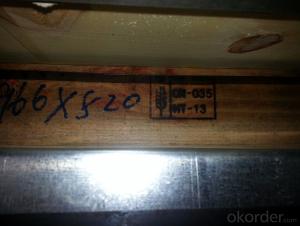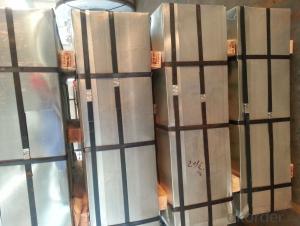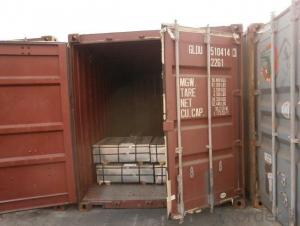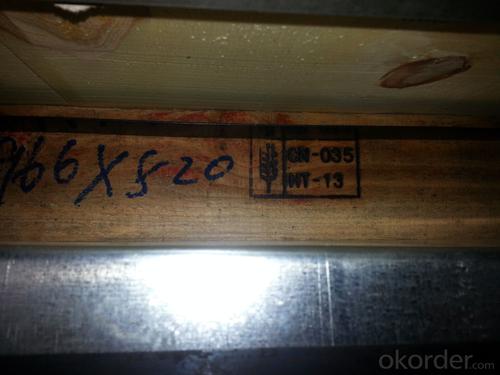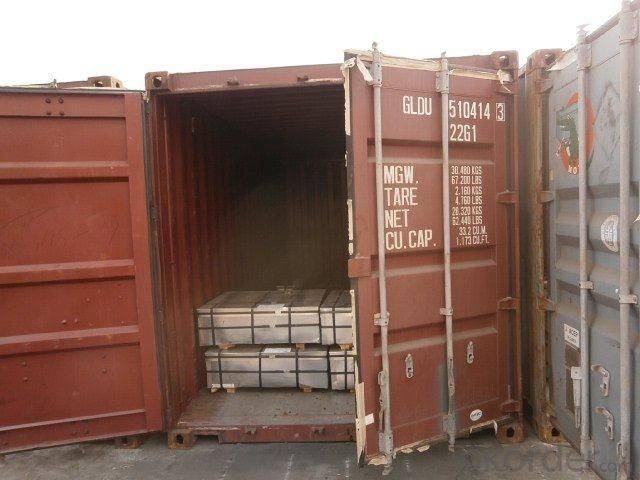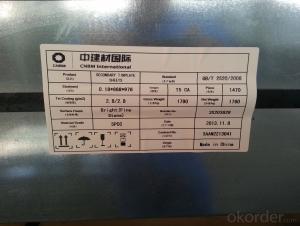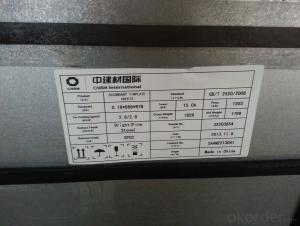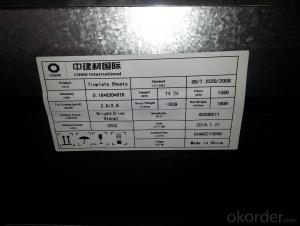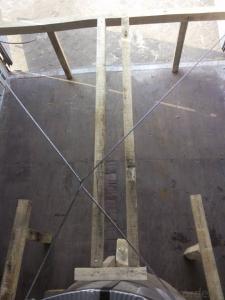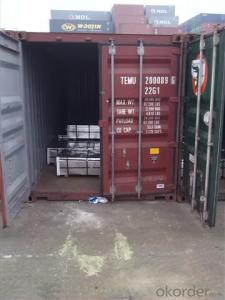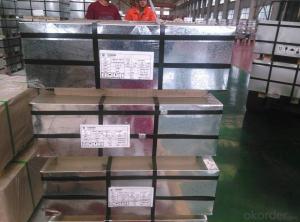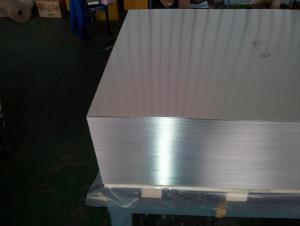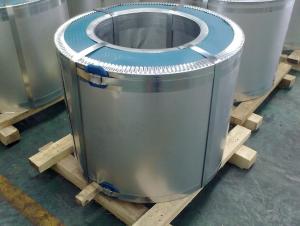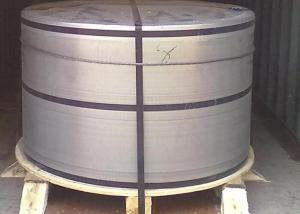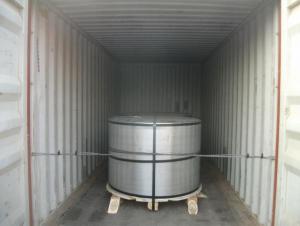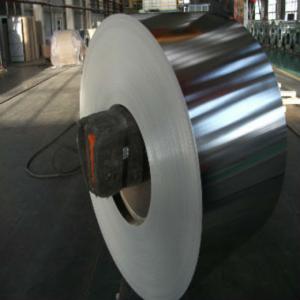Tinplate in SPCC/MR Grade for Squire Cans
- Loading Port:
- China main port
- Payment Terms:
- TT OR LC
- Min Order Qty:
- 25 m.t.
- Supply Capability:
- 30000 m.t./month
OKorder Service Pledge
OKorder Financial Service
You Might Also Like
1. Products: Tinplate
Tinplate and TFS are widely used for making all types of containers such as artistic cans, tea cans, painting cans, chemical package cans and metal printing etc. Its applications are not limited to containers; recently, they have also been used for making electrical machinery parts and many other products.
2. Specification:
Our goods enjoyed high quality both at home and abroad. We can supply tin free steel as follows:
Technical standard | JISG3303 and GB/T 2520-2008 |
Steel Type | MR / SPCC |
Thickness | From 0.15mm to 0.50mm (Tolerance +/- 0.01mm) |
Width | Normally 600-1050mm (Tolerance +3/-0 mm) |
Coating | 2.8/2.8g/m2 , 2.8/5.6g/m2 ,1.1/1.1 g/m2 |
Temper & Annealing | T1-T5, DR7-8, TS230-TH435, T49-T65(+/- 4) |
Surface Treatment | Bright & Fine Stone & Stone & Silver & Matt |
Payment terms | Letter of Credit (L/C), Telegraphic transfer (T/T) |
Price terms | CFR & CIF price term |
Delivery time | Within 60 days after received L/C or T/T down payment |
Packing | High quality shipping packing which contains thin plastic film, rust-proof paper, metal cover, metal angles and strap sand pallet. |
Minimum order Quantity(MOQ) | 25 metric tons (1X 20'' container) |
3. Pictures:
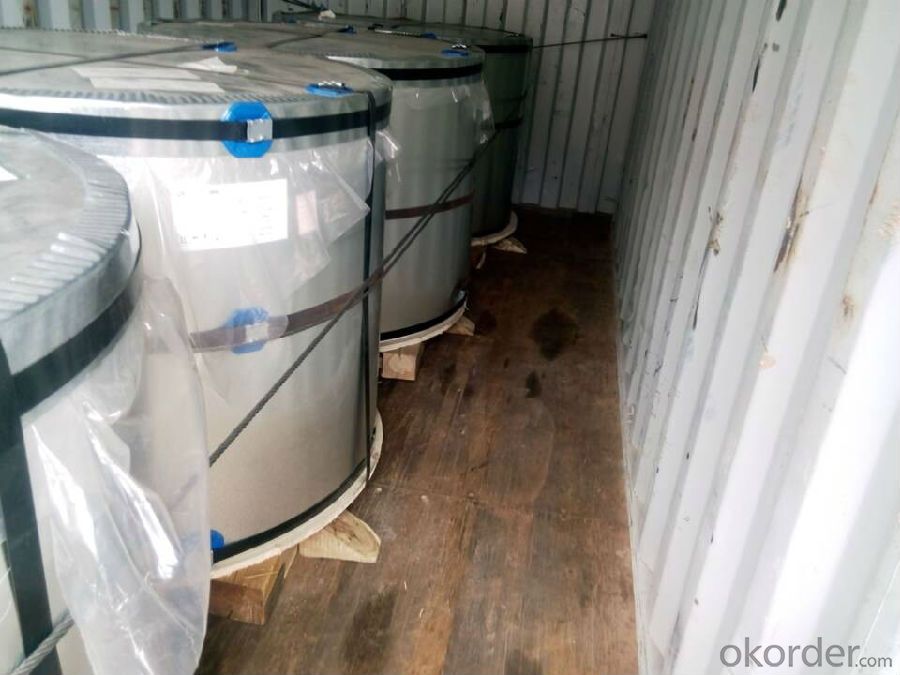
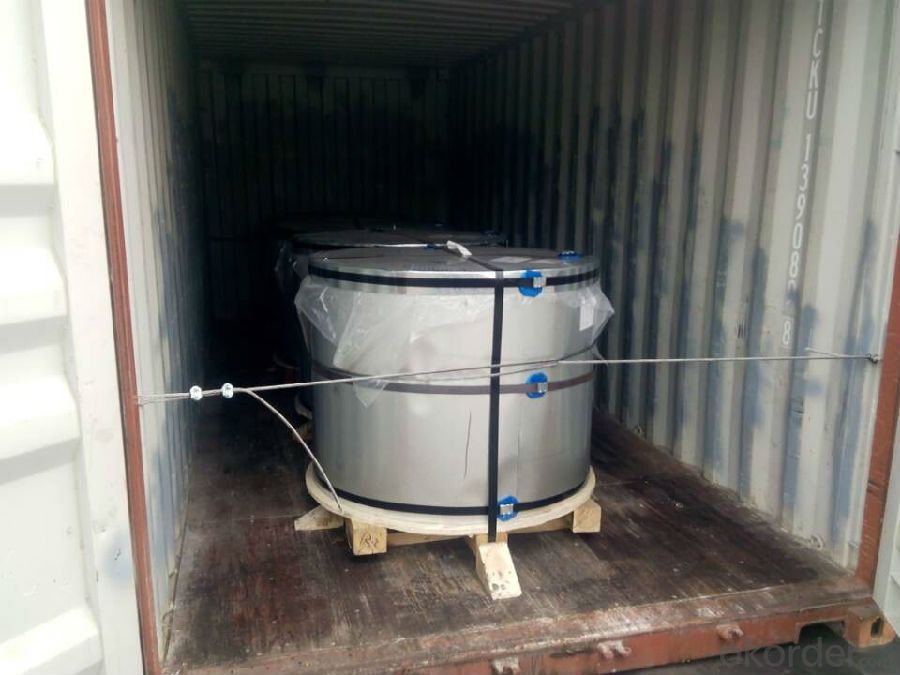
4. Features of the factory price/ tin free steel/tinplate/tfs/tmbp/etp/spte:
Beautiful Appearance
Excellent Paintability & Printability
Excellent Formability & Strength
Excellent Corrosion Resistance
Excellent Solderability & Weldability
5. FAQ:
We are one of the main producers in China for tinplate, tin free steel and also TMBP. At present, our productivity is more than 450000 MT/year.
For more information about our products or company, pls contact us freely.
Welcome your enquiries and orders.
- Q: How is tinplate coated to prevent corrosion?
- Tinplate is coated to prevent corrosion through a process called electrolytic tinning. In this process, a thin layer of tin is electroplated onto the surface of the tinplate, creating a barrier between the metal and its environment. This tin coating acts as a sacrificial layer, which means that it corrodes instead of the underlying metal. This protective coating helps to prevent the tinplate from rusting and extends its lifespan.
- Q: What are the different thickness options for tinplate?
- The different thickness options for tinplate typically range from 0.13mm (0.005 inches) to 0.49mm (0.019 inches), depending on the specific requirements of the application.
- Q: What are the printing options for tinplate?
- The printing options for tinplate include lithography, screen printing, and digital printing.
- Q: Can tinplate be used for packaging industrial chemicals?
- Yes, tinplate can be used for packaging industrial chemicals. Tinplate is a type of steel coated with a thin layer of tin, providing it with excellent corrosion resistance and durability. These properties make tinplate suitable for packaging industrial chemicals that may be corrosive or reactive. Additionally, tinplate is also impermeable to light, moisture, and oxygen, providing further protection to the chemicals.
- Q: What are the different tinplate finishes available?
- Some of the different tinplate finishes available are bright finish, stone finish, matte finish, lacquered finish, and printed finish.
- Q: What are the benefits of using tinplate for electrical components?
- Using tinplate for electrical components offers several benefits. Firstly, tinplate is corrosion-resistant, which helps to protect the components from moisture and other environmental factors that could lead to damage or malfunction. Secondly, tinplate has excellent conductivity, ensuring efficient and effective electrical flow within the components. Additionally, tinplate is a lightweight and durable material, making it ideal for use in electrical applications. Furthermore, tinplate is easily recyclable, making it a sustainable choice for manufacturers. Overall, utilizing tinplate for electrical components enhances their performance, longevity, and environmental sustainability.
- Q: Can tinplate be used for packaging electronic components?
- Yes, tinplate can be used for packaging electronic components. Tinplate is a commonly used material in the packaging industry due to its excellent strength, durability, and corrosion resistance. It provides effective protection to electronic components and helps in preserving their quality during storage and transportation.
- Q: What are the main applications of tinplate in the sports equipment industry?
- Tinplate is commonly used in the sports equipment industry for various applications such as packaging for tennis balls, protective coatings for golf clubs, and components for hockey sticks. Its corrosion-resistant properties and ability to maintain shape and durability make it an ideal material for ensuring the longevity and performance of sports equipment.
- Q: What are the main applications of tinplate in the pet food industry?
- Tinplate is commonly used in the pet food industry for packaging purposes. It provides a durable and protective barrier against moisture, oxygen, and light, ensuring the quality and freshness of pet food products. The main applications of tinplate in the pet food industry are for manufacturing cans, can lids, and easy-open ends, which help in preserving the nutritional value and extending the shelf life of pet food.
- Q: Can tinplate be easily opened and resealed?
- No, tinplate cannot be easily opened and resealed.
Send your message to us
Tinplate in SPCC/MR Grade for Squire Cans
- Loading Port:
- China main port
- Payment Terms:
- TT OR LC
- Min Order Qty:
- 25 m.t.
- Supply Capability:
- 30000 m.t./month
OKorder Service Pledge
OKorder Financial Service
Similar products
Hot products
Hot Searches
Related keywords
